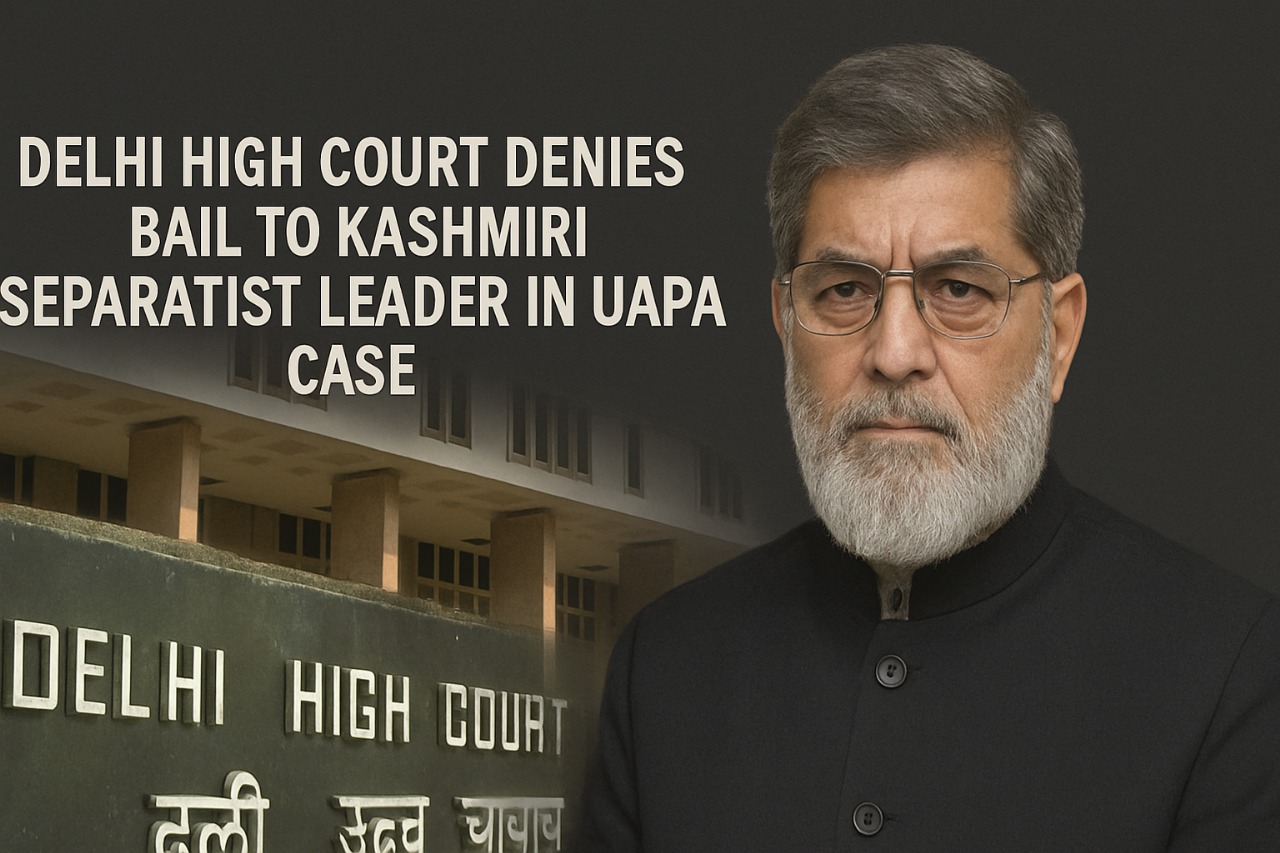Introduction
On 12 June 2025, the Delhi High Court denied the bail plea of Shabir Ahmad Shah, a veteran separatist leader from Jammu & Kashmir and the JKDFP chairman, in a case filed under the Unlawful Activities (Prevention) Act, 1967 (UAPA). The ruling strengthens the judiciary’s strong position on serious national security crimes, especially those concerning terror funding and anti-national activities.
Background of the Case
Long-time political leader Shabir Shah, who has long campaigned for Kashmir’s independence from India, has been detained since 2019 on charges relating to a terror funding case that is being probed by the National Investigation Agency (NIA). The case is based on an alleged plot of funding violent protests and incidents of stone-pelting in Kashmir and supposed connections to handlers based in Pakistan.
The Special NIA Court had earlier refused him bail on the grounds of the seriousness of the charges. Shah then moved to the High Court under Section 439 of the Code of Criminal Procedure, praying for regular bail, alternatively seeking house arrest in view of his age and prolonged detention.
Delhi High Court’s Reasoning
The Delhi High Court, dismissing the plea, noted that there is prima facie evidence against Shah. Justice Swarana Kanta Sharma, who delivered the judgment, pointed out that Shah’s membership in the JKDFP, his suspected connections with terror financiers, and past FIRs point towards a consistent trend of activities prejudicial to national security.
The Court also observed that Shah was not merely a passive abettor but an active conspirator in encouraging violent secessionist ideologies. His words, previous behavior, and suspected role in mobilizing stone pelters during 2010 and 2016 unrests were regarded as material factors in denying him bail.
By denying the alternative prayer for house arrest, the Court emphasized that such leniency could undermine the severity of the charges and compromise the integrity of the ongoing trial.
Legal Framework
Under Section 43D(5) of UAPA, bail is barred where the Court concludes that the allegations are prima facie true. This renders bail virtually impossible unless the accused shows that the evidence precludes the charge – a requirement Shah fails to fulfill.
The judgment also reiterated that freedom of speech, as assured under Article 19(1)(a) of the Constitution, does not guarantee incendiary or seditious speech to divide the country or incite violence.
Conclusion
The refusal of bail to Shabir Ahmad Shah highlights the judiciary’s strict reading of UAPA provisions and its larger national security context. Although the trial remains ongoing and Shah still has the freedom to approach the Supreme Court, the ruling indicates that courts will not grant bail in UAPA cases unless there is an evident absence of evidence or excess delay in proceedings.
This case is just one more instance of how the Indian judiciary weighs individual freedoms against the need for national integrity, especially in matters involving terrorism, sedition, and foreign hand.
About the Author
Agnimitra is a law student at the Department of Law, Hazra Campus, Calcutta University, Kolkata, with a growing passion for legal writing and research. Deeply interested in Intellectual Property Law, International Law, and issues related to Women and Child Safety, Agnimitra enjoys exploring how the law modernizes itself to the changing times of society. Whether it’s through writing articles or diving into legal debates, Agnimitra is always eager to understand and share the evolving nuances of the legal world.

